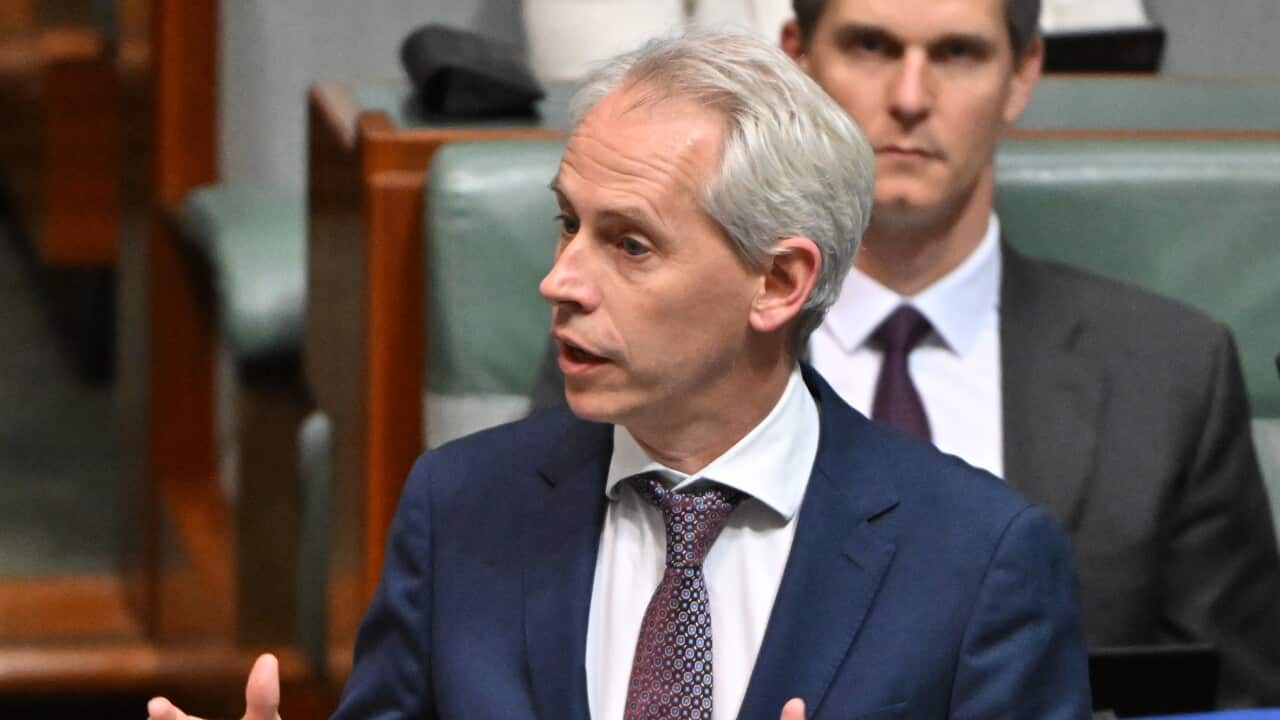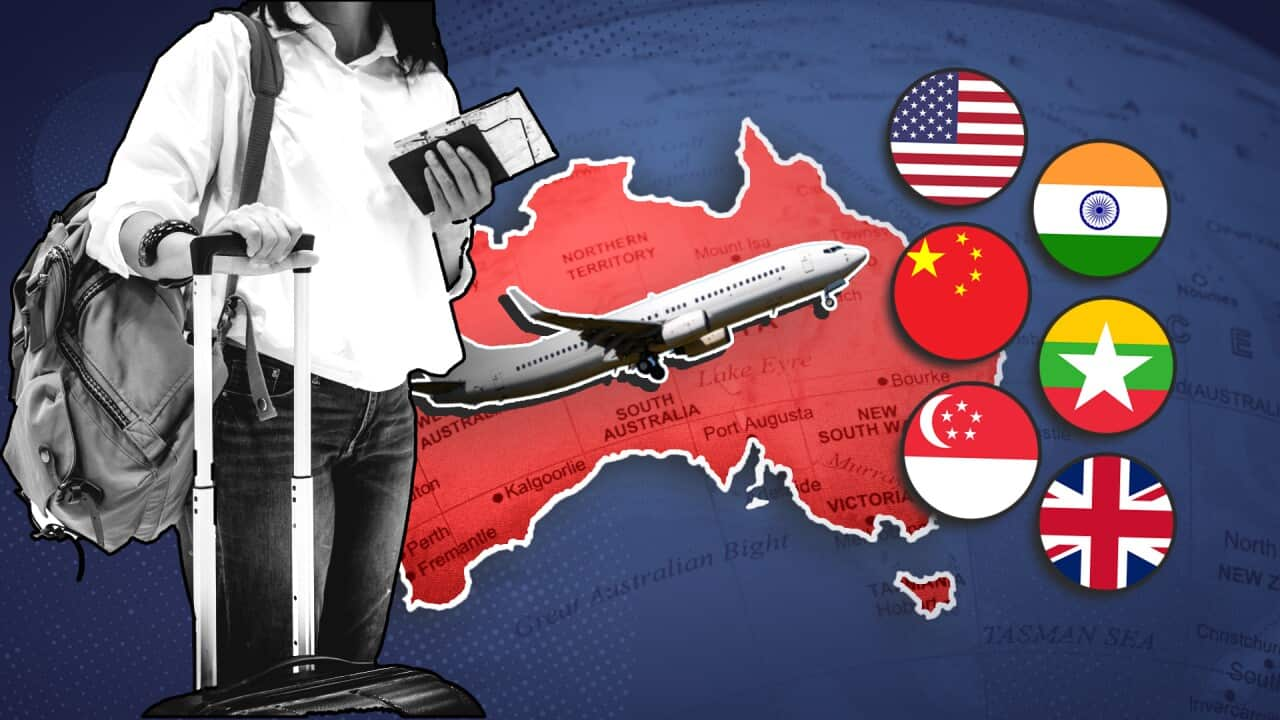KEY POINTS
- Australia is considering a proposal to make intra-company transfers easier.
- Immigration Minister Andrew Giles says it is 'an important idea that deserves serious consideration'.
- It's possible a new scheme could be advanced by next year.
The Albanese government is considering a proposal to make it easier for global companies to bring their best and brightest staff to Australia.
Simplifying the process for intra-company transfers is something that is being advocated for by the Committee for Economic Development of Australia (CEDA) as "low-hanging fruit" that could help relieve the skills shortage in Australia.
CEDA chief economist Jarrod Ball said the United States and the United Kingdom both already had clear paths for multinational companies to bring talent into those countries quickly and through a streamlined process.
In 2021, the US granted more than 116,000 intracompany (L1) visas, although before the pandemic this number was much higher at more than 698,000 in 2019.
Mr Ball said introducing a similar fast-tracked pathway in Australia would encourage more investment and a transfer of knowledge from overseas-based experts.

Staff from overseas offices could be more easily transferred to Australia under a proposal being considered by the federal government. Source: Getty / XiXinXing/iStockphoto
"Generally multinational, large companies are trusted users of the visa system, and they tend to facilitate a fair bit of foreign investment and also knowledge transfer across their workforces," Mr Ball said.
"They also tend to plan and develop their talent in a global way, and so they think about moving their best executive talent across borders, to the areas where there's the biggest projects, the biggest investment, and the biggest demand for specialised skills."
Trusted employers could get access to visas
At the moment, companies that want to send their staff to Australia must use the standard pathways available to all migrants, such as applying for a temporary skill shortage visa or permanent skilled visa.
Between 20,000 and 60,000 temporary skilled visas are issued every year, with 32,062 granted in 2021/22. But Mr Ball said it could take six months for an employee to get to Australia using this system.
"That's quite a long time when you think about the values of the investments and getting people into a country to work on projects," he said.
Mr Ball believes a new four-year visa with a pathway to permanent residency could be made available to trusted employers and accredited users of the visa system for intra-company transfers.
"I think you would have quite a high salary threshold, so probably well and truly in excess of $100,000," he said.
"You would also need to ensure that the person that's coming is a genuine employee. Other jurisdictions have rules like the person has to have been in employment in the company for more than 12 months," he said.
"And then I think you need some integrity and safeguards around salary compliance, so just making sure that the salary threshold has actually been met."
Provided these eligibility requirements were met, Mr Ball said there should be accelerated processing of the visa, without rules around the skilled occupation list or labour market testing.
Scheme could also benefit Australian workers
Mr Ball said discussions he'd had with large multinationals indicated there was significant demand for intra-company transfers.
"A lot of companies, particularly in the higher-tech areas, I think would really benefit and appreciate it," he said. "It's certainly a proposal that I've heard come up or supported in a number of discussions with large companies."
The scheme also has the potential to benefit workers in Australia.
Mr Ball said the establishment of advanced manufacturing by CSL and Cochlear in Australia shows they relied on experienced global talent to help build their workforce, and this meant knowledge was transferred to local workers in Australia.

Scientists at the CSL Biotech facility in Melbourne. Source: AAP
"Being able to bring that onshore allows us not only to establish that business investment and the opportunities around it, but also to transfer that knowledge to local workers."
Mr Ball said that given countries such as the US and UK already had these fast-track programs, some reciprocity was needed in Australia to mirror some of these arrangements. "It really helps to grease the wheels of international investment and trade," he said.
Hopes for progress in 2023
The Albanese government appears to be open to the idea, with Immigration Minister Andrew Giles telling a CEDA conference last month that it was "an important idea that deserves serious consideration".
"Providing global businesses with simple processes for international staff movement within the same company can help build Australia’s attractiveness for investment and growth," he said.
"But these rules must not permit companies to sidestep responsibilities for paying market salary rates in Australia. I look forward to working with CEDA, and others, on these reform questions."
CEDA is an independent think tank that aims to help improve Australia's economy and society.
A comprehensive review of Australia's migration system is now underway and is looking at whether the system serves the national interest and complements the skills and capabilities of Australian workers.
Submissions to the discussion paper are due on 15 December, with experts aiming to deliver an interim report by end of February, and a final strategy by late March/April.
Mr Ball hopes there will be real progress on the proposal next year.
"I certainly do think that this is one of the areas that's potential for low-hanging fruit and certainly something that could be advanced in 2023," he said.
"I don't think it's unrealistic in terms of potential to progress a proposal."
He said an intra-company program would also provide the government with an opportunity to test-run the idea of using income thresholds for the temporary skilled visa system.
"It might just give you a little bit more evidence around how a salary threshold works in practice."












